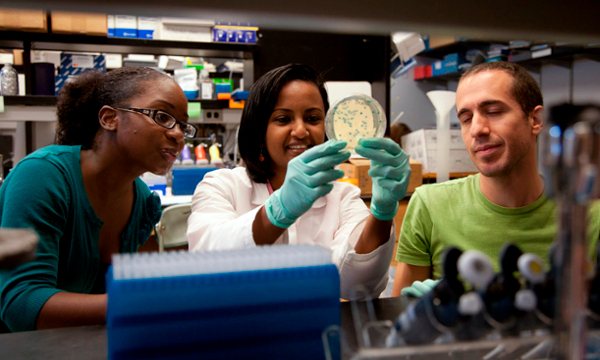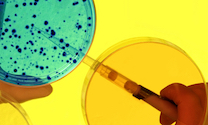Affiliate Resources

The graduate experience in the Microbiology and Molecular Genetics Program (MMG) begins with an introduction to the faculty, current students, and their research through a series of short talks, discussions, and lunches with each of the current student cohorts. The students then choose the first of three research rotations which are designed to give the student exposure to various research areas and techniques before choosing a direction and laboratory for their thesis research. In the first and second years, students also participate in courses which prepare them for analyzing, critiquing, and presenting research in the areas of viral and bacterial genetics, microbial pathogenesis, pathogen evolution, immunology, and molecular mechanisms underlying the biology of viral and bacterial systems.
MMG graduate students are afforded the opportunity to teach for one semester in their second year; all students are prepared for this experience by attending a symposium on teaching strategies, techniques, and ethics. Journal clubs, seminars, and attending national and international meetings contribute to the graduate educational experience. Students usually complete their graduate work in five to six years and then move on to excellent postdoctoral or other research-related positions within academic, industry, or government organizations.
Students in the MMG program have numerous opportunities to learn from and participate in research being conducted via these affiliate groups, centers, and departments:





